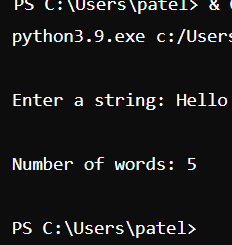Python Program to generate Fibonacci Series using Recursion
In this tutorial, we will discuss a Python program to generate Fibonacci Series using Recursion.
Before going to the program first, let us understand what is Fibonacci Series.
Fibonacci Series:
- The Fibonacci series is a sequence of numbers where each number is the sum of the two preceding ones, usually starting with 0 and 1.
Related: Python Program for the sum of Natural Numbers using Recursion
Program code to generate Fibonacci Series using recursion in Python
# Fibonacci Series Using Recursion in Python
def fibonacci(n):
if n <= 0:
return "Input should be a positive integer."
elif n == 1:
return 0
elif n == 2:
return 1
else:
return fibonacci(n - 1) + fibonacci(n - 2)
terms = int(input("Enter the number of terms: "))
if terms < 1:
print("Please enter a positive integer.")
else:
print(f"The first {terms} terms of the Fibonacci series are:")
for i in range(1, terms + 1):
print(fibonacci(i), end=" ")
Explanation
- Function Definition: The
fibonaccifunction takes an integernas input and returns the nn-th term in the Fibonacci series using recursion. - Main Program: The program prompts the user to enter the number of terms and then generates the Fibonacci series up to that number using the
fibonaccifunction and prints the result.
Output
- When you run the above program, it will prompt you to enter the number of terms.
- After entering the number, it will generate the Fibonacci series up to that number of terms using recursion and print the result.
Conclusion
- In this tutorial, we learned how to generate the Fibonacci series using a recursive approach in a Python program.
- Understanding this concept is essential for solving various mathematical problems and competitive programming challenges.




